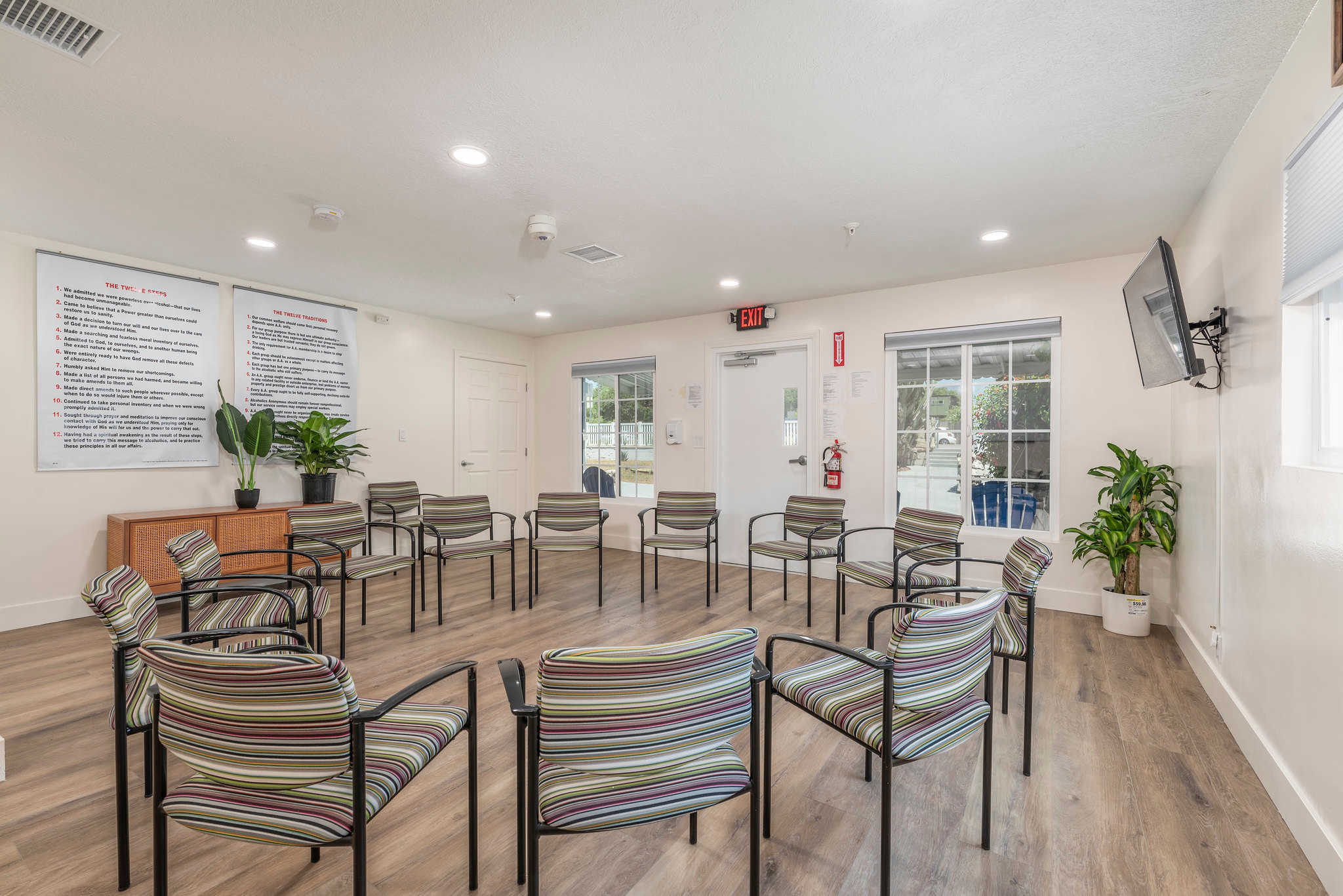The Benefits of Dialectical Behavior Therapy
Sometimes, talking things over with a trusted friend or loved one can help you feel stronger and think more clearly. Imagine not having anyone to talk to. Then, imagine having a mental health issue like severe depression and no one with which to share your experiences or thoughts. We all need to express our feelings and our pain.
Maintaining our mental health is crucial to our well-being. Talk therapies are used increasingly with mental health disorders, substance use disorders (SUDs), personality disorders, and other mental health issues. Interestingly, some forms of talk therapy practiced thousands of years ago are still effective today.
The focus of dialectical behavior therapy (DBT), when used with treatment, is to develop acceptance while promoting behavioral changes. This allows for the normally opposing influences to work together, aiding recovery.
What Is Dialectical Behavior Therapy?
DBT is a talk therapy designed to help people manage mental health challenges. DBT came from cognitive-behavioral therapy (CBT), a talk therapy. Originally, DBT was a comprehensive, evidence-based treatment to assist individuals struggling with borderline personality disorder (BPD). This therapy places emphasis on the management of extreme emotions.
The word dialectical means "acting through opposing forces." DBT is rooted in science and accedes to the opportunity for individuals to control strong emotions. DBT also works together with CBT treatments to help individuals build healthy relationships.
DBT is a comprehensive cognitive-based treatment that addresses more complex and difficult-to-treat mental health disorders. DBT is also a treatment for people with multiple mental health diagnoses. This therapy serves the following functions:
Enhance behavioral capabilities
Improve motivation to change
Help generalize abilities to the environment
Structure the treatment environment
Enhance the therapist's capabilities for effective treatment of clients
The functions may include individual psychotherapy, group skills training, phone consultation, and a therapist consultation team.
Borderline Personality Disorder
Empirically supported treatments are those treatments rooted and proven in controlled research. DBT is an empirically supported treatment for individuals diagnosed with BPD who display dangerous, life-threatening behaviors. Examples of such behaviors are attempting suicide and self-injury.
BPD is a "Mental illness that severely impacts a person's ability to regulate their emotions." People who struggle with BPD experience extreme mood swings. They may feel uncertain about how they see themselves and rapidly shift their feelings about others. People with BPD also tend to view things in extremes.
Studies show that 75% of individuals with BPD have a history of one suicide attempt or more, and 90% have a history of non-suicidal self-injury. It is crucial for those struggling with BPD to receive treatment as swiftly as possible. Individuals with BPD possess a biological propensity to struggle with more intense and reactive emotions than normal.
Telepsychology and Phone Coaching in Dialectical Behavior Therapy
Teleconferencing from home to see a doctor is now almost commonplace, especially since the pandemic drove the need for stay-at-home services. Considering the success of telehealth, it only makes sense that other agencies and businesses follow suit.
Although trials continue on telepsychology with DBT, the focus is on making contact between sessions. Face-to-face therapy remains the standard option, however, while data collection continues on the similarities and differences between treating individuals in the office and via teleconferencing.
Telephone coaching is also a relatively new treatment mode in DBT. Its use aims to help prevent suicidal behaviors and repair deterioration in the relationship between the client and therapist. Phone coaching also helps individuals generalize skills they learn in treatment to their everyday lives.
Texting is also used for DBT and provides another effective medium for giving and receiving care. Texting is convenient and works well for people who cannot talk on the phone or prefer texting over talking. Telephone coaching is especially favorable among lower-income individuals who cannot easily attend face-to-face sessions between regular appointments.
Other Dialectical Behavior Therapy Benefits
Emotional dysregulation refers to a person's inability to control emotional reactions to stimuli. The desire for emotional regulation encourages and motivates many individuals to seek mental health treatment. Encouragement, motivation, and various treatment modalities convince people to enter treatment programs. Deciding on the most effective mix of therapies can be challenging, but it can make a difference in an individual's recovery progress.
In addition to the benefits of DBT for BPD, DBT can reduce anxiety, stress, and trauma symptoms. DBT is also effective in helping to manage the following mental health issues:
Generalized anxiety disorder (GAD)
DBT in Different Treatment Settings
Dialectical behavior therapy can be effectively integrated into various levels of care depending on individual needs and symptom severity. Outpatient treatment programs often incorporate DBT skills groups alongside individual therapy sessions, allowing individuals to practice new skills while maintaining their daily routines.
Intensive outpatient programs may offer multiple DBT groups per week, providing more intensive skill-building opportunities for those who need additional support. Partial hospitalization programs can include comprehensive DBT programming throughout the day, while inpatient residential treatment may incorporate DBT principles into the overall treatment milieu.
DBT and Co-occurring Disorders
Many individuals who benefit from DBT also struggle with multiple mental health conditions simultaneously. Co-occurring disorders treatment that incorporates DBT can address emotional dysregulation while also treating substance use issues, trauma-related symptoms, or other mental health conditions.
For individuals dealing with both personality disorders and substance use issues, DBT's focus on distress tolerance and emotional regulation can be particularly helpful in preventing relapse and managing triggers that might lead to substance use.
Family Involvement in DBT
Family therapy components can enhance DBT treatment by helping family members understand the skills being learned and how to support their loved one's recovery. Family members can learn communication techniques and boundary-setting skills that complement the individual's DBT work.
Specialized Applications of DBT
DBT has been adapted for various populations and specific conditions. For individuals whose emotional dysregulation is connected to past traumatic experiences, trauma-informed care approaches can be integrated with DBT principles to create comprehensive treatment plans.
The mindfulness component of DBT is particularly valuable for many mental health conditions, as it teaches individuals to observe their thoughts and emotions without being overwhelmed by them.
Dialectical Behavior Therapy and Recovery
Your therapist or doctor may add DBT to your treatment plan to manage extreme emotions, affect communication, or both. If you are in treatment or recovery and believe DBT might help, ask your therapist or doctor if it would be a consideration. Dialog is imperative for healing, and you must be able to communicate your feelings peacefully. No one has to go through recovery alone.
DBT's emphasis on building distress tolerance skills can be particularly valuable for individuals in aftercare programs who are learning to navigate life's challenges while maintaining their recovery.
The skills learned in DBT—including mindfulness, distress tolerance, emotion regulation, and interpersonal effectiveness—provide individuals with practical tools they can use throughout their lives to manage difficult situations and maintain their mental health.
Recovery from mental health conditions and substance use disorders often involves learning new ways of coping with stress, managing emotions, and building healthy relationships. DBT provides a comprehensive framework for developing these essential life skills while working toward lasting recovery.
Use our comprehensive treatment directory to find qualified mental health professionals who specialize in dialectical behavior therapy and can provide evidence-based treatment for personality disorders, emotional dysregulation, and co-occurring conditions. Our directory helps you locate providers experienced in DBT and other therapeutic approaches that can support your journey toward emotional stability and recovery.
Locate Treatment Centers Near You
Enter your location to discover facilities offering the care and support you need in your area.


